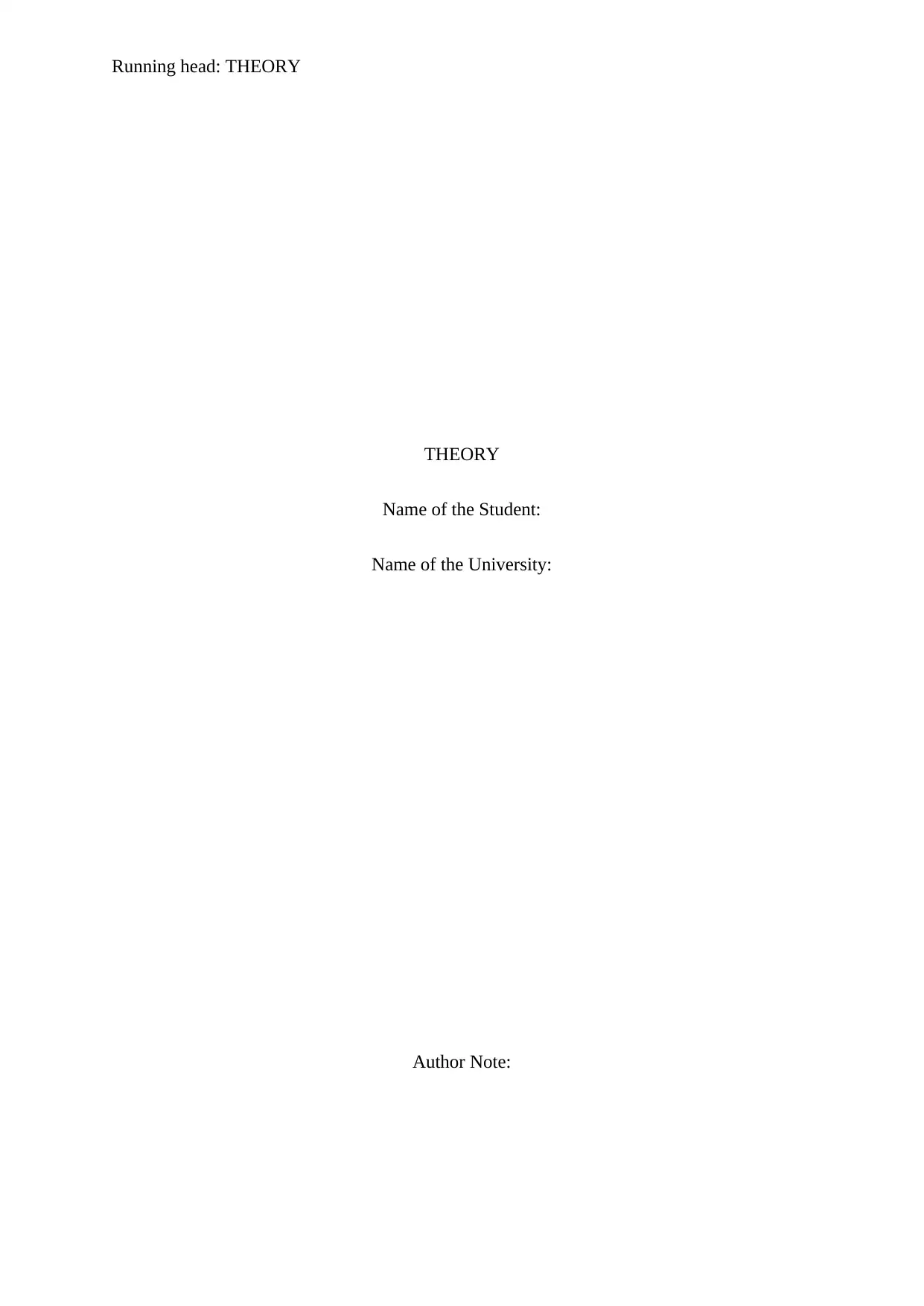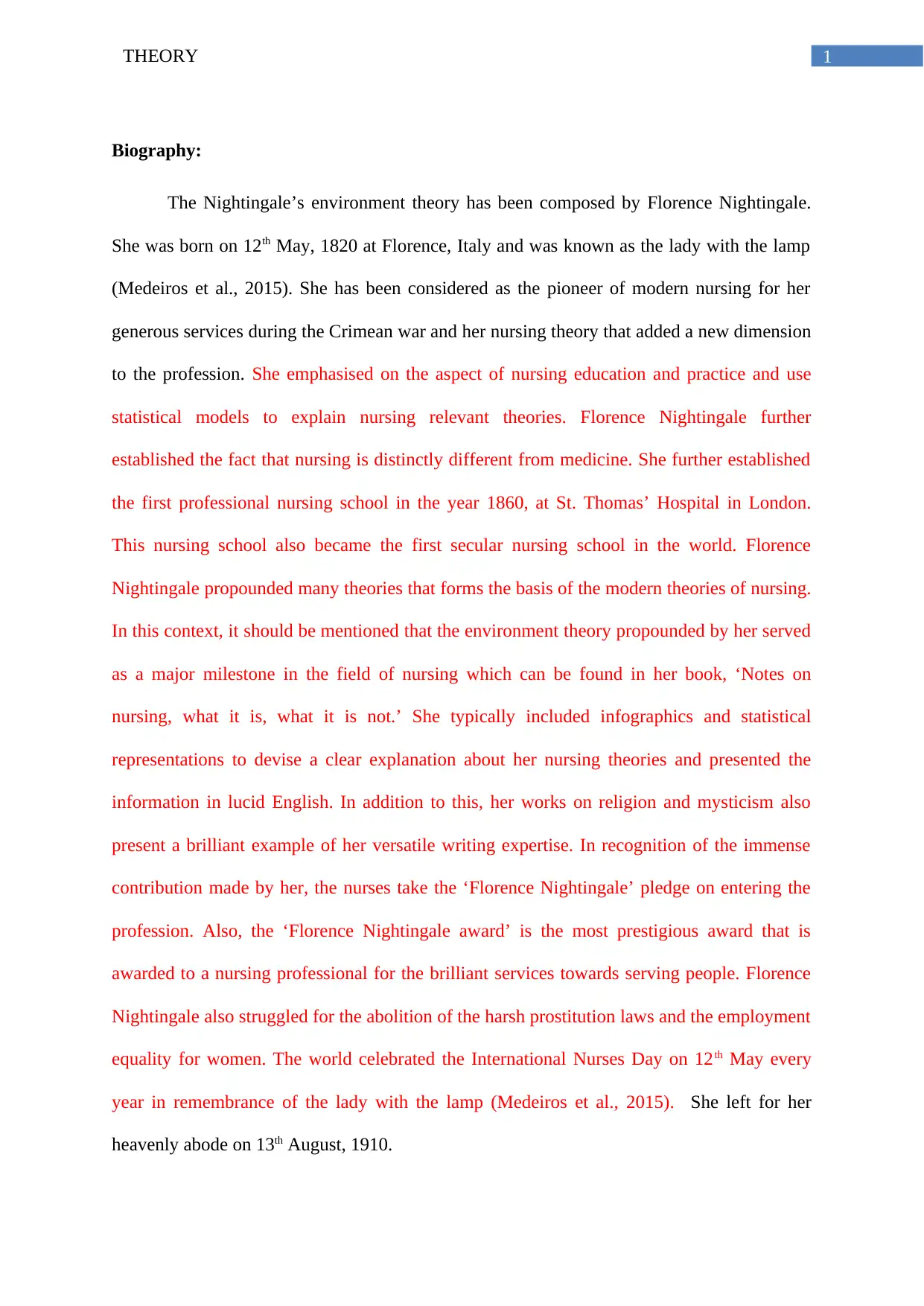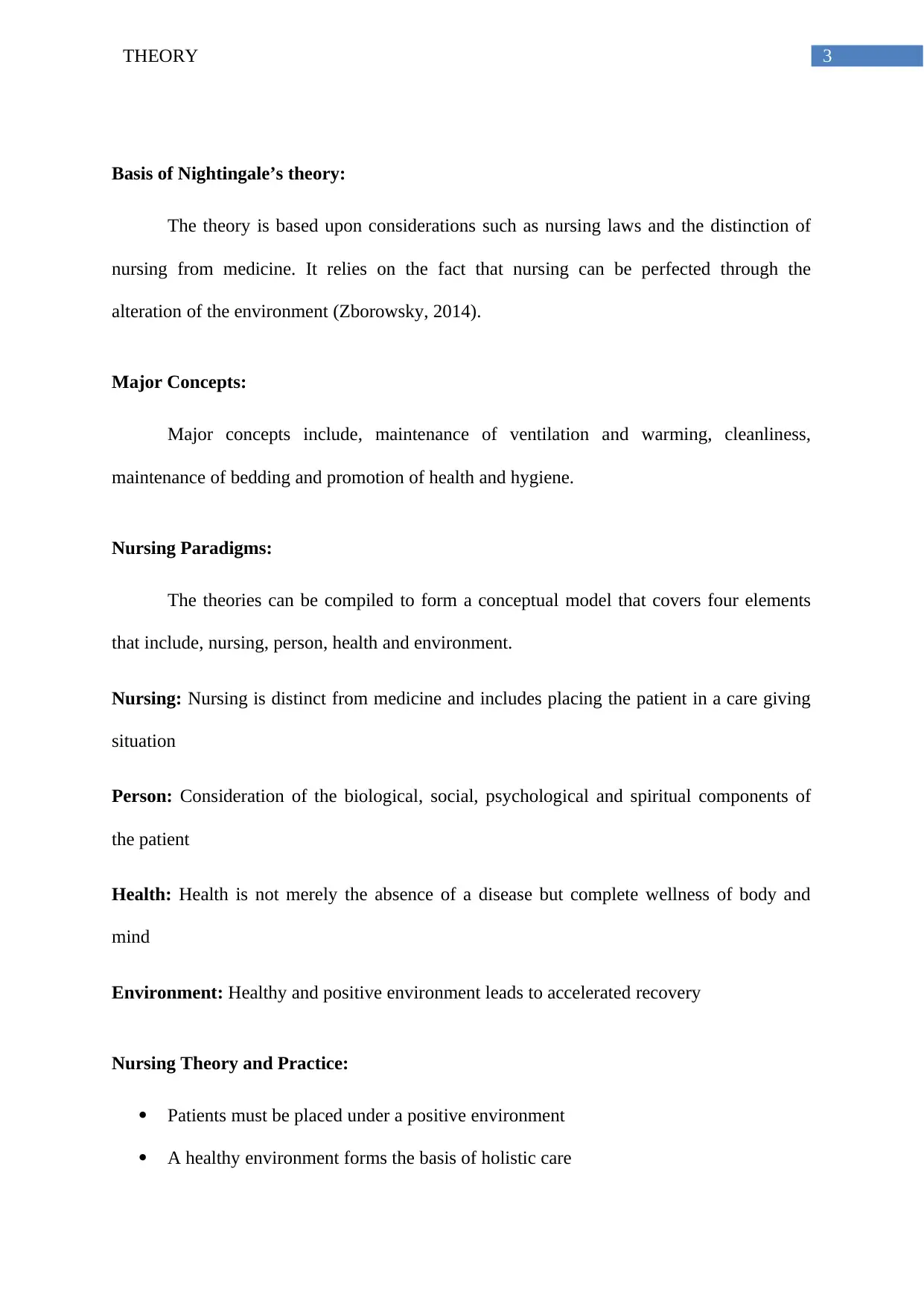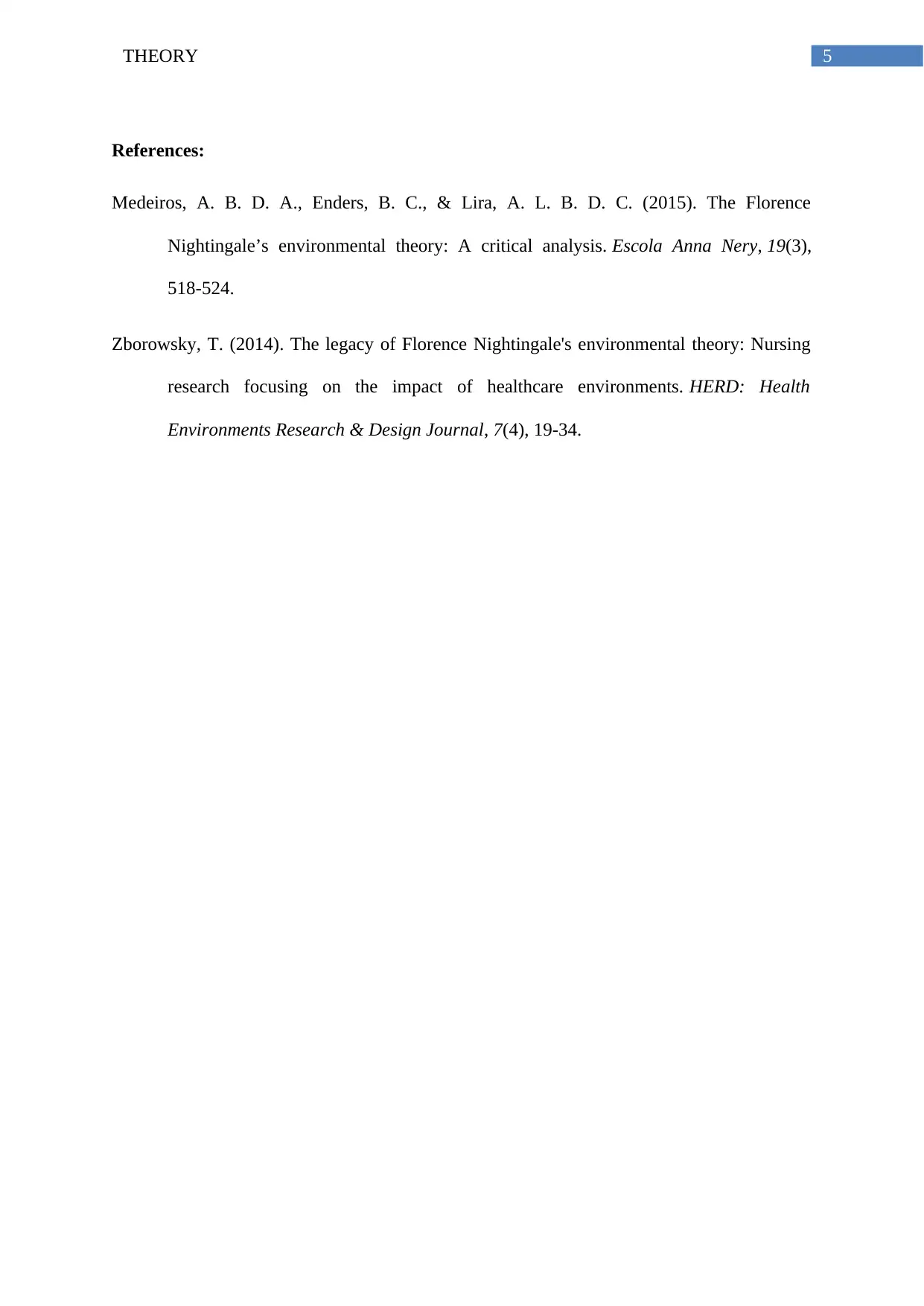Nightingale's Environmental Theory: Report on Nursing Principles
VerifiedAdded on 2021/11/17
|6
|681
|248
Report
AI Summary
This report provides a comprehensive analysis of Florence Nightingale's Environmental Theory, a cornerstone in the field of nursing. It explores the theory's origins, major concepts such as ventilation, cleanliness, and bedding, and its impact on nursing practice. The report highlights the nursing paradigms within the theory, including the interconnectedness of nursing, the patient (person), health, and the environment. It also discusses the importance of a healthy environment for holistic patient care and the distinct role of nursing in patient care. While acknowledging its historical significance, the report also briefly touches upon the theory's limitations, such as its focus on physical recovery and relative lack of emphasis on psychological needs. The report concludes by emphasizing the enduring legacy of Nightingale's work in shaping modern nursing practices and the ongoing relevance of her principles in healthcare environments.
1 out of 6













![[object Object]](/_next/static/media/star-bottom.7253800d.svg)